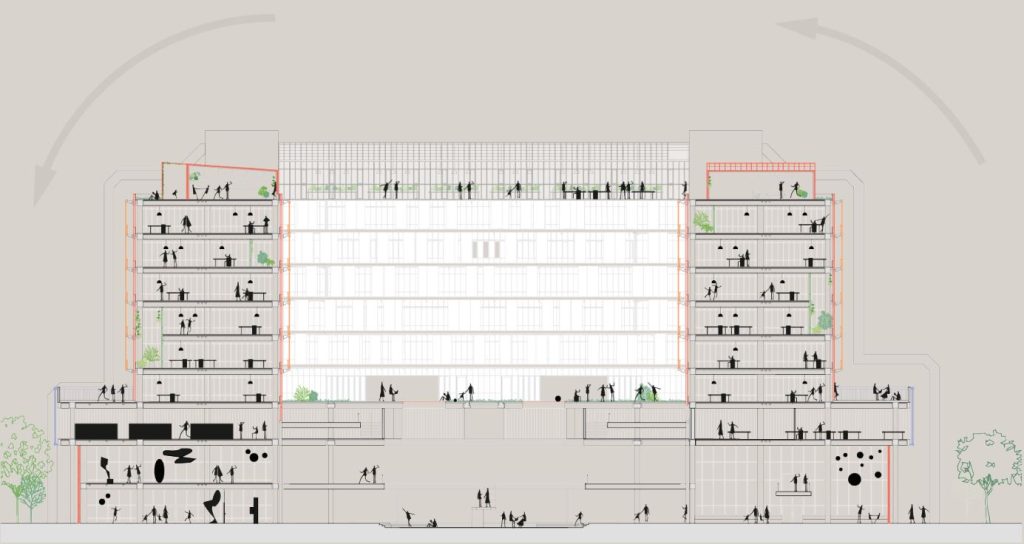2023-2024
Post-covid Campus Development
Aufgaben: Entwicklung von Raumprototypen
Fördergeber: DAAD

Post-pandemic university campuses of the future -Zero carbon model for academic buildings
University campus sustainability and climate resilience has been a major focus of university planners, policy makers, and academics as a result of realizing the impact of university activities have on the natural environment and the need to achieve net zero carbon emissions by 2050. Universities typically develop, own, and occupy large quantities of buildings of various ages, sizes, and uses. Universities, especially those with
campuses nested in highly urban environments such as Technical University of Berlin (TUB) and Royal Melbourne University of Technology (RMIT), have unique constraints and variables when aiming for net zero
carbon emissions for their respective campus building infrastructure. Each university has also been seeking to develop their own frameworks for campus sustainability improvements. TUB and RMIT, as partners within
the ‘World cities, World class (WC2)’ university collaboration partnership have been cooperating since 2016 to bring ‘eco-campus’ expertise to international collaborations of academics and students in various locations
around the world. This research aims to strengthen our research collaboration (outcome 2) into achieving net zero outcomes for our respective campuses. This DAAD/UA grant will enable sharing of expertise directly through mutual exchange to enable better sustainable outcomes for existing new development and retrofit projects of academic buildings on both campuses. It will enable junior scientists (outcome 1) to work on innovative models to ensure the sustainability targets of each university.